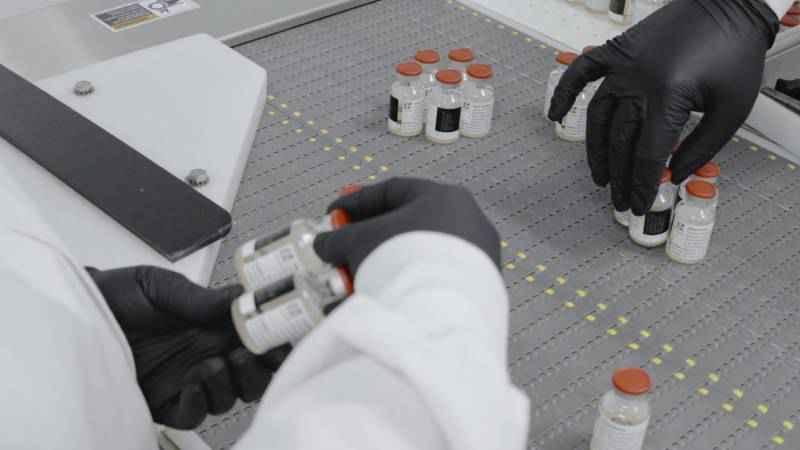New CDC study raises concern regarding COVID-19 immunity after infection
[anvplayer video=”4996910″ station=”998122″]
People who have recovered from COVID-19 may not have 90 days of immunity, according to a recent study from the Centers for Disease Control and Prevention.
The study focused on 156 health care workers in the United States who tested positive for COVID-19. They took an antibody test about a month after developing symptoms and then took a second antibody test 60 days later.
The researchers found 94% of the participants experienced a decline in antibodies by the time of the second test and 28% experienced a significant decline.
"The 28% had such a large drop in their antibody levels by 60 days, it would be highly unlikely that they would be protected from getting reinfected," explained KSTP medical expert Dr. Archelle Georgiou. "I absolutely think people should let go of the belief that you’re safe in terms of being reinfected or reinfecting others just because you’ve already had COVID-19."
The study also found differences in antibody levels based on the severity of the illness. Those with a mild case of the virus tended to have more rapid declines in antibodies.

In this undated image from video provided by Regeneron Pharmaceuticals on Friday, Oct. 2, 2020, vials are inspected at the company's facilities in New York state, for efforts on an experimental coronavirus antibody drug. Antibodies are proteins the body makes when an infection occurs; they attach to a virus and help the immune system eliminate it.[Regeneron via AP]
5 EYEWITNESS News reached out to the Minnesota Department of Health for statistics regarding reinfection rates in Minnesota.
Dr. Nick Lehnertz, a medical specialist with MDH, said, "The CDC ‘gold standard’ for SARS-CoV-2 reinfection is obtaining whole genome sequencing (WGS) on the specimen from the initial positive test, and comparing it to the sequence from the subsequent positive test. This is the only way to definitively determine that the second positive test result is from reinfection. So far, MDH has investigated over 130 cases of individuals with repeat positive tests from 91-180 days after the initial positive test, and so far have not been able to confirm reinfection. Of note, individuals can continue to test positive after an initial positive test for an extended period of time, due to ‘left over’ non-infectious viral remnants from their initial infection."
Lehnertz said, in the rare documented cases of reinfection around the world, people became sick for a second time anywhere from one to six months after the initial infection.
Minnesota has seen record-breaking infection rates, with nearly 300,000 people testing positive within the last 90 days.
State health officials urge those Minnesotans not to assume they are protected from the virus, simply because they recently tested positive.
Lehnertz said, "Our understanding is constantly evolving as we learn more about the virus and the immune response. Because of this, universal use of masks and appropriate social distancing continues to be absolutely imperative for all, regardless if you have previously been exposed to SARS-CoV-2, or have received the COVID-19 vaccination."
Georgiou added, "I hope people really take to heart there is no ‘free pass’ that people get just because they had COVID. Because we don’t have the science yet, it would be safest to wash your hands, social distance, wear a mask and assume that you’re still vulnerable to getting infected and infecting others.